Likemeback: An interview with director Leonardo Guerra Seràgnoli and stars Denise Tantucci, Angela Fontana and Blu Yoshimi
Italian director Leonardo Guerra Seràgnoli presents Likemeback at this year’s Locarno Film Festival. It features Denise Tantucci, Angela Fontana and Blu Yoshimi as three friends who hire a boat and proceed to document their exploits on social media, resulting in joy, disputes and recriminations.
We interviewed the filmmaker and actors after the feature’s screening at the festival to find out about their latest work, the perils of technology and the perception of people online.
Leonardo, what motivated you to make the film?
Leonardo Guerra Seràgnoli: I wanted to experiment after watching some girls on a boat some summers ago. I noticed how they were interacting with social media and the phone. It has become an obsession of a gesture. Technology has created a need for technology. The social media side is more emotional and less functional, but it’s more humanised which I think is the appeal. I was reading the interviews of Ingmar Bergman. I was always struck by how he made a movie every summer. I wanted to do that in between making bigger budget movies. I thought I should do a small film about how interactions have changed with time. This generation is at the peak of technological exposure. It operates very fast. Reflecting on AI, I thought I’d make a film where I try to relive my 18-year-old self through female characters. This establishes a dialogue rather than a monologue of my memories. This I can co-write with the actresses I find. It was free in terms of structure. It was organic. I involved the actresses from the beginning, because I didn’t want the dialogue to be inauthentic.
Blu Yoshimi: Yes, a lot of the dialogue was spontaneous.
Do you have social media?
LS: I do but I came late. So I don’t feel so absorbed. The delay kept me sober.
Denise Tantucci/ Angela Fontana/ BY: Yes!
Do you think young women have a unique experience of social media? Are the pressures particular?
LS: Yes, there’s more pressure on women than on men. Percentages are higher for women being cyber-bullied. There’s a desire for equality but also this risk of vanity, of postures. Is this freedom to do whatever I want with my body? But then the male gaze judges them. There are a lot of contradictions. This is why I wanted the actresses to be a part of the writing process.
BY: The research showed an increase in exposure of the male and female body. Why should we be so surprised? It’s always been there but now it’s more available. I’m not against nudity – I am mostly nude in the film – but I am against nudity when it feels like it’s been requested to sell something. It’s a delicate subject because it’s either freedom or it’s not. You can spend nights looking at bodies. We are proposing really natural bodies in the film. I wasn’t comfortable with my body and I was scared to see the movie. But when I saw this character, so fragile, I appreciated my two or three extra kilos, my natural way of laughing. The director of photography [Gianfilippo Corticelli] tried to get the core of the three characters. They are so imperfect and so beautiful.
DT: It’s a psychological pressure, and women and men have the same issues with that. What are you exposing? How are you exposing? Why are you exposing? I read an article about why women feel the need to be skinny. We have a lot of obsession with perfection of the body. We believe we are free but we are not free. We are slaves for someone. Every century has a different product. We are all slaves to social media. The problem is you feel observed and you feel judged. This is the problem of our era.
What is it about the boat setting that brings into relief their social media activity?
LS: When you are on a boat, you are in a tight space. You are forced into physical contact. You have to sit next to one another. There are limits. It forces you to stay there. The contrast with social media, the virtual world, is fascinating. The physicality becomes invisible. The virtual takes them away. They’re there but not there. You’re physically there, but emotionally somewhere else. The boat forces back into physicality: the interactions, the frictions.
AF: It was claustrophobic. The boat closes down everything but there’s still a lot of space. It was really vital for the character. They were always on the phone, which emphasised the characters.
DT: I felt seasick! But yes, we are entangled. But we are also entangled with our followers.
How did you try to depict social media on screen?
LS: Technology can be boring. I was trying to mimic or narrate the relationship with social media, one sometimes bored, sometimes excited. The climaxes and downfalls of the emotion are different in social media than reality. It was a challenge: we had an Instagram page to prepare for the film. They transformed into the characters on the screen, before and during filming. We wanted to make it completely contentless so we could study the human reactions. I wanted to go from first gear to sixth gear because feelings aren’t sequential. That’s why there are big jumps in mood.
DT: My character loses her phone very quickly, so she tries to steal everyone else’s. So for her, she’s exploring new possibilities outside the phone.
BY: During shooting it was important that I was aware what was happening on the phone. There’s this compulsiveness on Instagram, and I’m always swiping on Tinder. I made it that every picture, every rejection, is hurting me.
AF: Girls and boys expose themselves through social media. I used to judge it, but through research you can see that some people help their friends and family through it.
Has making the film changed the way you use social media?
BY: I put much more weight on what I’m seeing and saying. I stopped trying to be like everyone else, to conform. I would like to make mine like Leonardo DiCaprio’s profile: he just posts about oceans and fish. There’s no ego. He’s trying to use it as a tool of information, which is really important right now. I’m concerned we can’t stop this [social media] process: we can’t say it’s wrong or right because it’s just happening. We can try to use it for the best. There’s lots of topics I’m interested in discussing, not only fish.
DT: I don’t like social media but I realise it’s a part of my job. Doing this movie helped me understand how creepy it is. The audience care about what you post. You can really change someone’s thoughts. I’m a very pessimistic person so I don’t have a lot of hope. I didn’t change my ideas. I use my phone for study, so I hope social media can be used for good but I doubt it.
AF: It’s really important not to abuse it. If used consciously, it can be helpful. I don’t like to post much.
What do you think is going to happen next in communications and technology?
LS: I think there’s a growing integration of technology and the human. Transhumanism is this new thing about how we’re going to extend our lives through technology. AI is doing much more than we realise. This film was meant to create a bridge, a constructive dialogue with this generation. Social media is how these people live. My 14-year-old sister hasn’t even noticed they’re on their phones in the film. It’s second nature. There’s a distinction between nature and addiction. I wonder if there’s a way to autoregulate it. It’s exponentially increasing. Technology is much ahead of us. I think we’re going give away a part of our body to AI to monitor our health.
Are you anxious about who controls these technologies?
LS: I am a little bit. But I think it’s sensible not to give out information. I think companies commit shocking ethical breaches. We’re behind in regulating and educating with these things.
Do you anticipate a rupture or break from technological progress?
LS: Sure, some people return to the countryside. But I’m quite dystopic in my worldview. We will give away a part of our body: microchips that read our blood. It will be for medical reasons.
Any future projects?
LS: I’m adapting a book, The Time of Indifference, from Alberto Moravia. It talks about the decay of the bourgeois family which doesn’t want to give up its status. It tries to live on through the matriarchal figure. It’s a 100-years check on the state of Italy. Obviously, we are not in a good place with fascism and racism. The current government is very controversial. It’s a disaster. There’s no coherence or ethics. It’s focused on the local and the self – people survive through almost feudal relationships. There’s no sense of country.
Joseph Owen
Photo: Pier Marco Tacca/ Getty Images
Likemeback does not have a UK release date yet.
Read more reviews from our Locarno Film Festival 2018 coverage here.
For further information about the event visit the Locarno Film Festival website here.

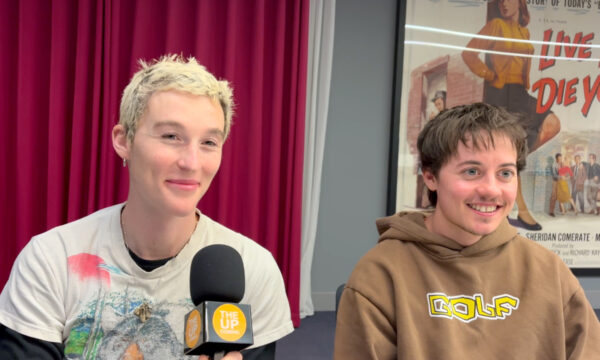

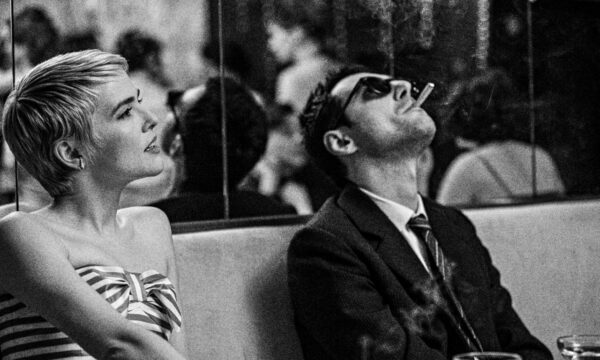
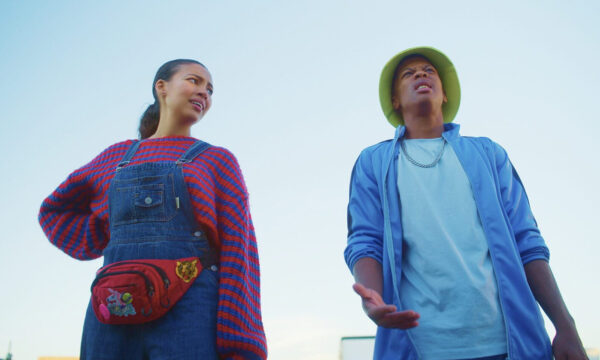
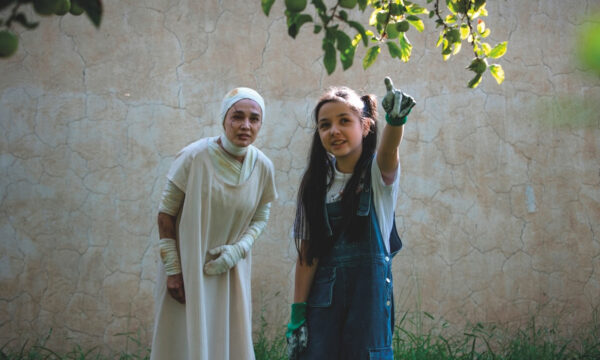
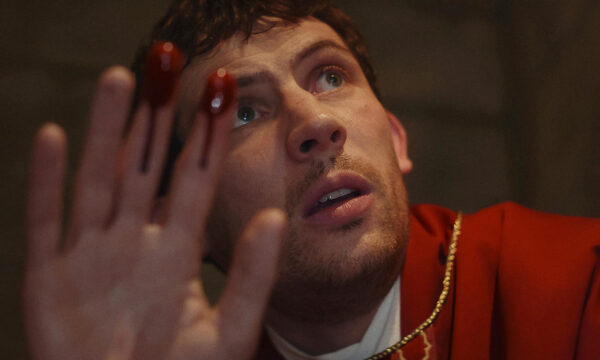
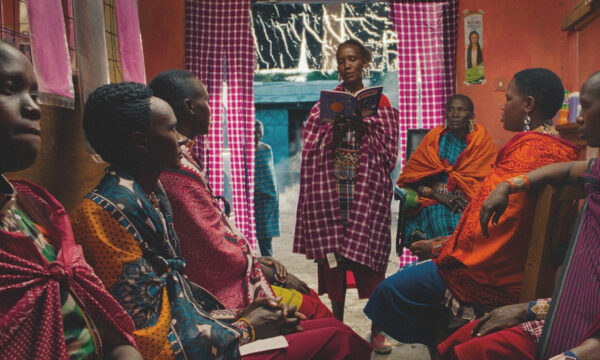
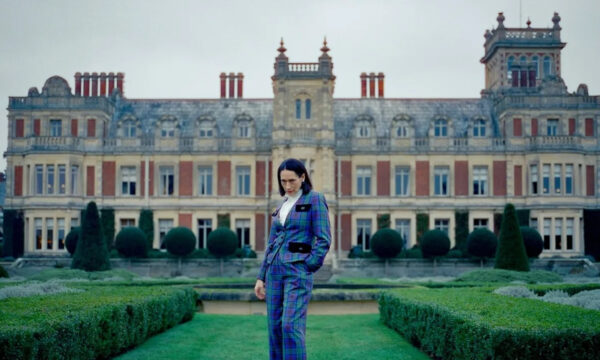
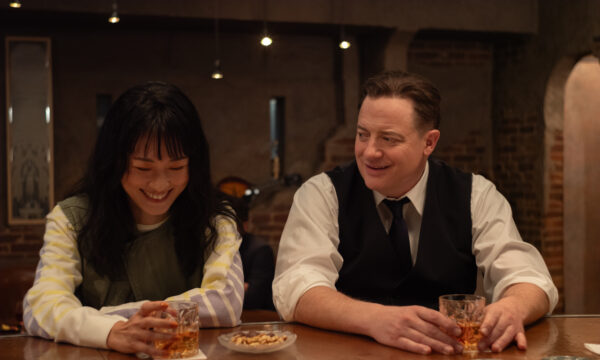















Facebook
Twitter
Instagram
YouTube
RSS